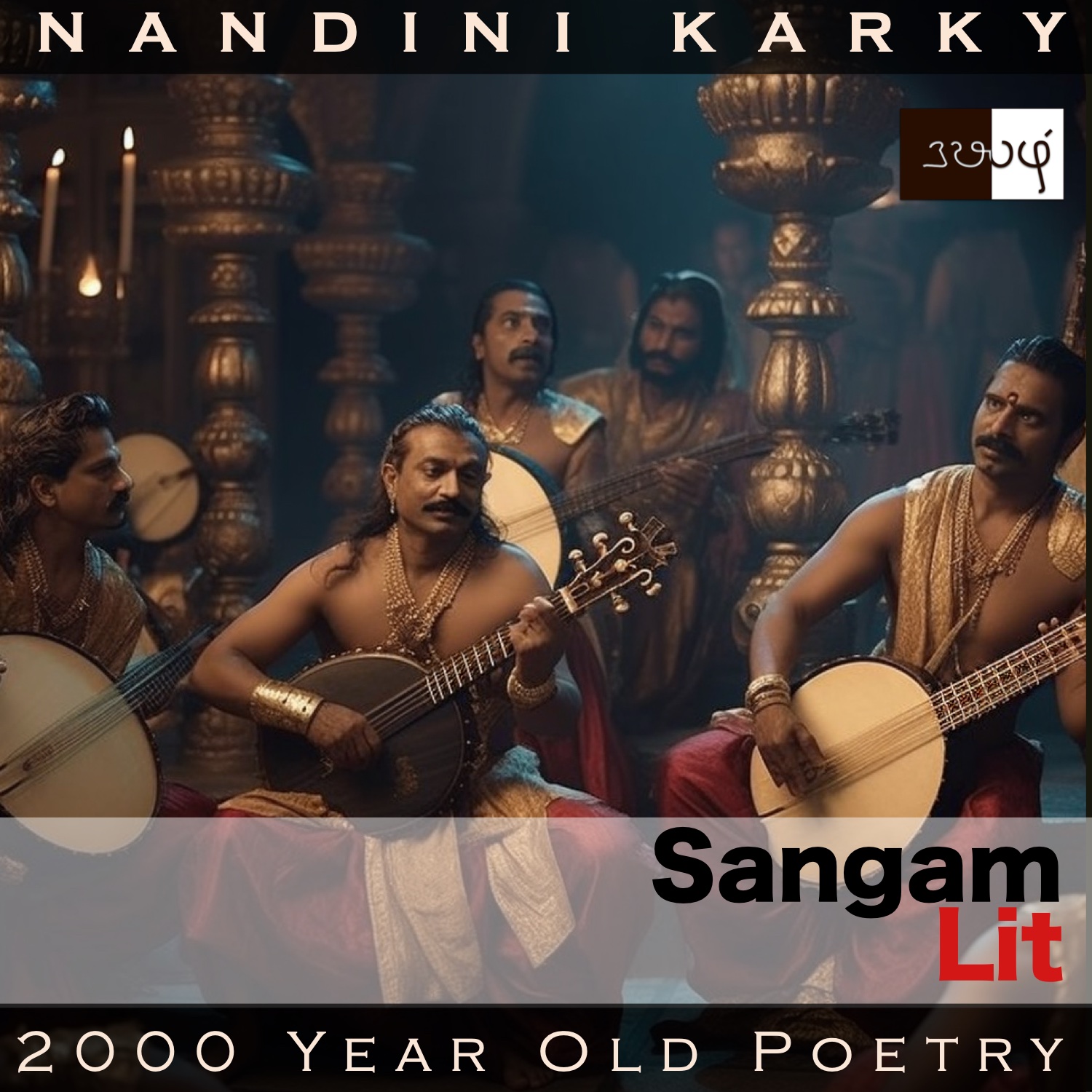Podcast: Play in new window | Download
Subscribe: Apple Podcasts | Spotify | Amazon Music | Android | iHeartRadio | TuneIn | RSS | More
In this episode, we listen to the consequences of a king’s charity, as depicted in Sangam Literary work, Puranaanooru 149, penned about the Velir King Kandeera Koperum Nalli by the poet Vanparanar. The verse is situated in the category of ‘Paadaan Thinai’ or ‘King’s praise’ and renders details about the musical scene of those times.

நள்ளி! வாழியோ; நள்ளி! நள்ளென்
மாலை மருதம் பண்ணி, காலை
கைவழி மருங்கின் செவ்வழி பண்ணி,
வரவு எமர் மறந்தனர் அது நீ
புரவுக் கடன் பூண்ட வண்மையானே.
A tiny poem that holds within a quirky thought. The poet’s words can be translated as follows:
“O Nalli, long may you live, O Nalli! In the darkness of the evening hour, they play the ‘marutham’ melody and in the morning, they play the ‘sevvazhi’ melody on their lutes. Our bards have forgotten the historical method. And that is because of what you consider your duty – that generosity of yours!”
Time to explore the nuances. The poet starts with a blessing to King Nalli, and then describes how the bards in the king’s court have taken to playing the ‘Marutham’ tune in the evening and playing the ‘Sevvazhi’ tune in the morning. This was the opposite of their musical custom, which dictated that ‘Marutham’ be played in the morning and ‘Sevvazhi’ in the evening, the poet adds. He concludes with the words that only the king is to blamed for this, for his vast generosity is what has made those bards forget.
The poet seems to imply that you need a dash of deprivation for art to remain pure. He declares that since the king has been showering the bards with wealth ceaselessly, they seem not to have the discipline to remember the what’s what of their work. Is it true that only suffering makes art sublime? The other interesting detail here, of much relevance to musicians and those interested in music, is how the ancient Tamils had devised certain melodies for certain times of the day. It makes me to wonder about the logic they would have used for such a classification. Were the tunes of the morning energising and those of the evening relaxing? Was one, a call to action, and another, a celebration? Hope one day, we will have answers to many questions like this, about the thoughts and ways of our ancestors!




Share your thoughts...